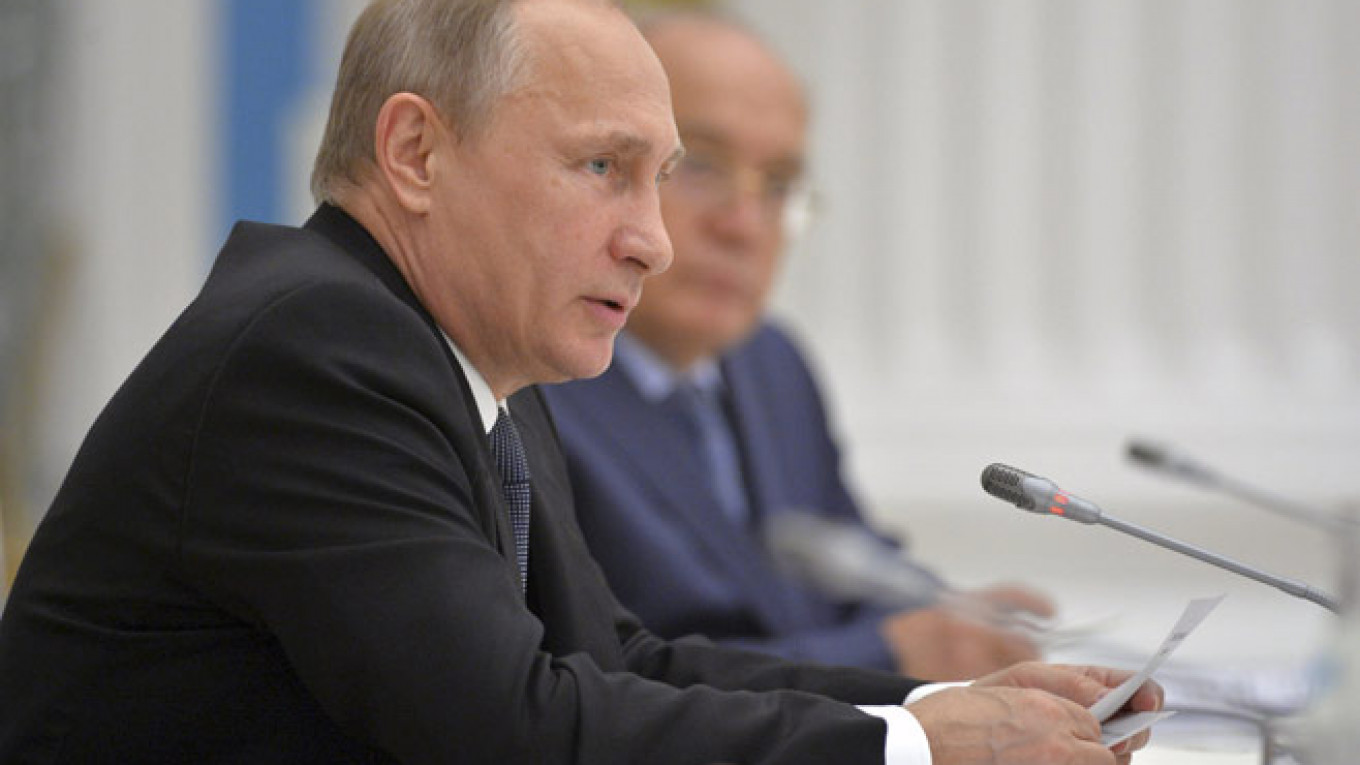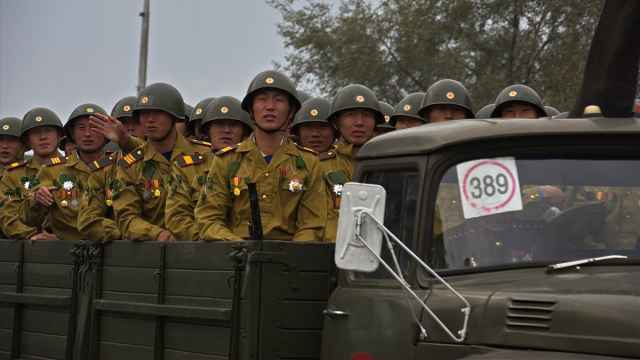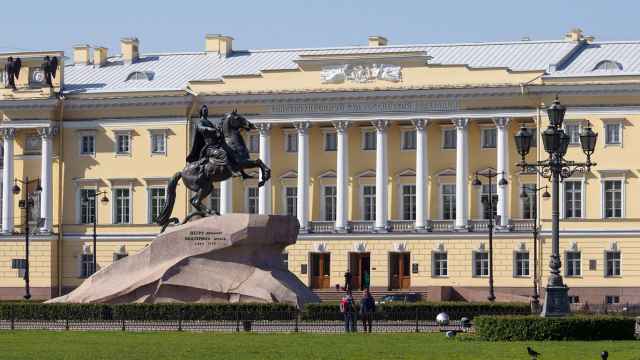With a revamped amnesty for people and companies who declare their foreign assets just steps away from becoming law, the Russian government would appear to be offering a prodigious olive branch to the business community.
If only the companies saw it that way.
Instead, many Russian businesses — some of which moved money abroad in the first place to protect it from corrupt officials — are left wondering what the catch is.
The so-called "capital amnesty" bill offers Russian citizens and businesses immunity from prosecution on a range of criminal, administrative and tax violations involving their foreign assets — provided they declare those assets to the government between July 1 and Dec. 31 this year. The bill passed its final reading in Russia's lower house of parliament earlier this month and must now go before the upper house for approval before being signed into law by the president.
The brainchild of President Vladimir Putin, the bill is one element in a wider drive to steer the capital that has fled Russia over recent decades back into the country.
Besides its obvious economic motives, the "de-offshorization" drive has a certain symbolic value. After the rampant lawlessness of the 1990s and persistent corruption of the 2000s, the initiative aims to prove that Russia is, once again, a safe place to keep your money.
The problem is that many on the ground believe the state has not done enough to reform the business environment — and without trust in the state, the amnesty will have only limited success, analysts polled by The Moscow Times said.
"If people start thinking 'No, this is just one more trick from the Russian government to find out who hid their money,' they will just decide to hide it deeper," said Denis Vasiliev, a partner at Moscow-based law firm Podolsky & Klein.
Letter of the Law
The capital amnesty bill received a rigorous overhaul on its way through the State Duma that has, at least on paper, made it significantly more polished and functional than earlier versions, lawyers polled by The Moscow Times said.
Thanks to an amendment submitted by the Supreme Court before the bill's second reading, information obtained through the amnesty will now be barred from use in criminal trials — assuaging the fear that information offered up voluntarily might be used to launch criminal cases against businesses.
In another improvement, the bill now also contains a concrete list of the offenses for which businesses and individuals can receive immunity.
But for Russian businesses, the letter of the law is only part of the story. It is for this reason that, although the bill resembles amnesties that have been offered in some European countries, it is perceived very differently in Russia, said Artem Toropov, a senior associate in international tax law at law firm Goltsblat BLP.
"What people often forget is that in these European countries there are typically no practices, such as in Russia, of hostile takeovers or use of criminal law charges against entrepreneurs. [The amnesty bill] definitely has a different meaning to Russian businessmen," Toropov said.
Lack of Trust
In the absence of trust, some Russian business owners are looking for any loophole in the bill that could come back to haunt them — and some aspects of the amnesty do give grounds for concern.
One is the fact that financial crimes such as money laundering and fraud will not be pardoned. These crimes were specifically excluded following consultations with the Financial Action Task Force (FATF), a multilateral organization that combats money laundering, in order to keep Russia off the FATF's blacklist.
The problem is that in the Russian justice system, even legitimate business transactions can sometimes be viewed as fraud or money laundering, Toropov said.
"For example, if a person has not payed taxes on certain funds and then uses those funds for a perfectly legitimate purpose, use of those funds can be regarded as money laundering," he said.
Another concern is data security. Although the law pledges to protect information disclosed by participants, some fear that it could end up in the hands of unscrupulous officials anyway.
"There is a risk that this information could be indirectly or unofficially used to target specific individuals, and so law-abiding citizens who are concerned with their personal safety have certain doubts about the secrecy regime," Toropov said.
Beyond these specific concerns, some businesses are simply afraid of doing anything that could draw officials' scrutiny, added Vasiliev from Podolsky & Klein.
"The fact that you submit the declaration, no matter what you put down — that fact itself can bring attention to you. And some people are afraid of this," he said.
Defend Your Rights
This fear is prevalent among small and mid-sized Russian businesses, many of which still distrust the court system and do their best to avoid any altercation with the authorities, Vasiliev said. For these companies, an encounter with a corrupt official might be enough to put them out of business.
Rich and powerful companies, on the other hand, know they can afford to defend their rights.
"Big companies can really create a brick wall around themselves," said Yelena Panfilova, deputy director of anti-corruption organization Transparency International and former head of its Russian branch.
"Companies that can invest in serious legal support, that can hire the Big Four [audit firms], they have more trust in the tax authorities and judiciary, because they know how to deal with it," she said.
But despite these widespread concerns about the risks of participating in the amnesty, some businesses and individuals will certainly take advantage of it, lawyers agreed.
There is one group for which the law will be particularly useful for, Toropov said — ordinary citizens with undisclosed personal bank accounts abroad. These individuals can now declare those accounts without fear of being prosecuted for not reporting them or for not paying tax on foreign income.
Corruption
But for the rest, trust — or lack of trust — will remain critical.
Despite frequent talk of the fight against corruption, Russia last year fell to an abysmal 136th place out of 175 countries in Transparency International's annual Corruption Perceptions Index.
A number of state initiatives exist on paper, but progress on the ground is slow. A survey conducted last year by the Russian Union of Industrialists and Entrepreneurs found that 25 percent of members considered corruption one of the year's most acute problems for business — followed immediately by "an ineffective judicial system," considered critical by 24 percent of members.
"There are legal provisions stating that there should be better conditions for business to operate, but they are not enforced properly," Transparency International's Panfilova said.
With Western sanctions over the Ukraine crisis and steep falls in the price of oil nudging Russia into a deep recession this year, the government is once again talking about the need for drastic reforms to spur sustainable economic growth.
But in a less than promising sign, some prominent police officials have begun blaming domestic corruption on the scapegoat of the moment: Western governments.
"Our main problem is that imposing order [on corruption] isn't to the advantage of our Western partners," Vladimir Markin, the spokesman for Russia's powerful Investigative Committee, said last week, the Interfax news agency reported. "For them, that same flight of funds into offshores is a massive boost."
Contact the author at d.damora@imedia.ru
A Message from The Moscow Times:
Dear readers,
We are facing unprecedented challenges. Russia's Prosecutor General's Office has designated The Moscow Times as an "undesirable" organization, criminalizing our work and putting our staff at risk of prosecution. This follows our earlier unjust labeling as a "foreign agent."
These actions are direct attempts to silence independent journalism in Russia. The authorities claim our work "discredits the decisions of the Russian leadership." We see things differently: we strive to provide accurate, unbiased reporting on Russia.
We, the journalists of The Moscow Times, refuse to be silenced. But to continue our work, we need your help.
Your support, no matter how small, makes a world of difference. If you can, please support us monthly starting from just $2. It's quick to set up, and every contribution makes a significant impact.
By supporting The Moscow Times, you're defending open, independent journalism in the face of repression. Thank you for standing with us.
Remind me later.






